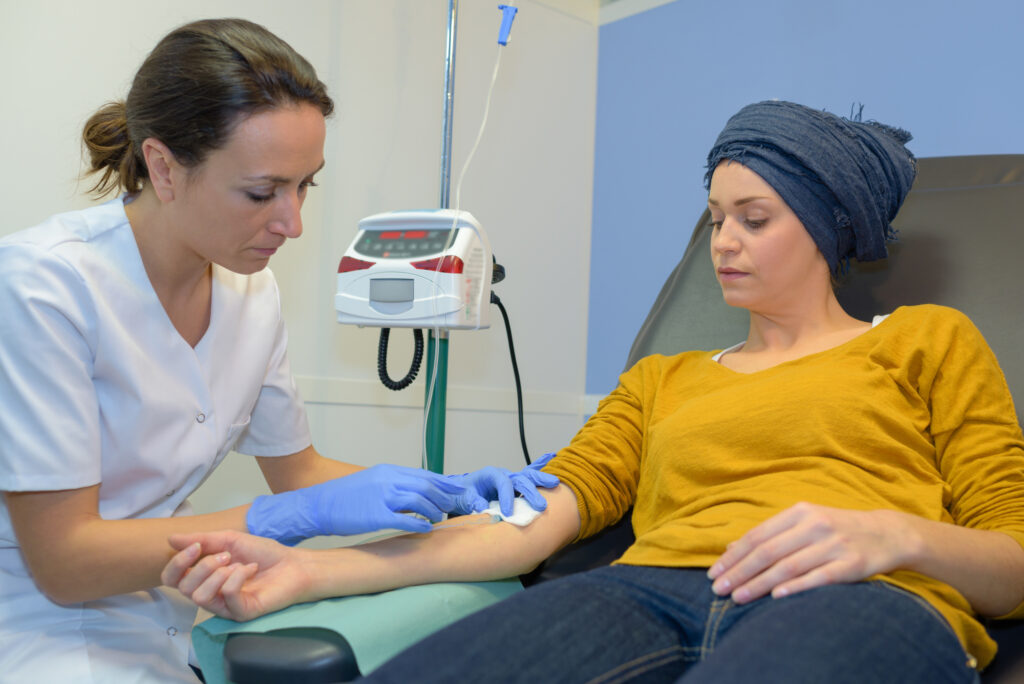Chemotherapy-induced peripheral neuropathy (CIPN) is a fairly common side effect of cancer treatment, affecting some 30-40 percent of patients. It occurs when the drugs used to treat cancer cause damage to nerves away from the brain and spinal cord, causing symptoms such as tingling, pain, burning, numbness, and loss of fine motor skills. Symptoms usually occur on both sides of the body, starting in the fingers and/or toes and moving inward.
Treatments range from over-the-counter pain relievers and physical therapy to a reduction or discontinuation of chemotherapy. Treatment is often ineffective, however, and in some cases, the nerve damage is permanent.
Now, however, scientists from the Rogel Cancer Center at the University of Michigan have discovered a simple and inexpensive option for preventing or reducing this insidious side effect: vitamin D. Their research was published in the November 2023 issue of JNCCN—Journal of the National Comprehensive Cancer Network.
The Study
Previous research suggested that vitamin D deficiency could increase the risk of developing CIPN. To validate this idea, the Michigan team first conducted a prospective-retrospective analysis using data and samples collected from 1,191 patients with early-stage breast cancer who participated in the SWOG S0221 clinical trial—a large-scale study comparing the effectiveness of different chemotherapy regimens.
Their analysis showed that 20.7 percent of patients who had a vitamin D deficiency experienced at least a grade 3 level of CIPN, compared to 14.2 percent of those with normal vitamin D levels.
Armed with those results, the researchers then turned to a mouse model to further validate the findings. Mice were randomly assigned to either a normal diet or a vitamin D-deficient diet for a period of two months. The mice were then randomly assigned to receive either four doses of chemotherapy or a placebo.
Follow-up tests indicated that vitamin D-deficient mice who received chemotherapy had significantly greater mechanical sensitivity—another symptom of CIPN—than mice in the other groups.
“These results suggest that vitamin D supplementation in patients with lower levels of vitamin D may reduce peripheral neuropathy, and particularly high-grade peripheral neuropathy, which would improve these patients’ long-term quality of life,” said senior researcher Daniel L. Hertz, PharmD, PhD, of the University of Michigan College of Pharmacy.
Conclusions
In addition to potentially providing an avenue for preventing CIPN, the results may also help reduce some racial disparities in chemotherapy outcomes. Previous research indicated that Black patients were at higher risk for developing CIPN than white patients. Not coincidentally, Black patients also have a higher prevalence of vitamin D deficiency. If vitamin D supplementation proves effective in reducing incidence of CIPN, it could significantly improve the experience for Black chemotherapy patients.
“This study finding uncovers a new potential strategy to combat CIPN, thereby improving the quality of life for cancer patients undergoing treatment,” said Mei Wei, MD, of Huntsman Cancer Institute at the University of Utah, who was not involved in this research. “It is an exciting step forward in our continuous mission of patient-centered cancer care.”
And the best part is that there are few—if any—barriers to using vitamin D as a CIPN preventive. “There are barely any negative consequences that come from taking steps to increase vitamin D levels,” said Hertz. “Patients can easily take safe, inexpensive, and widely available over-the-counter supplements.”






